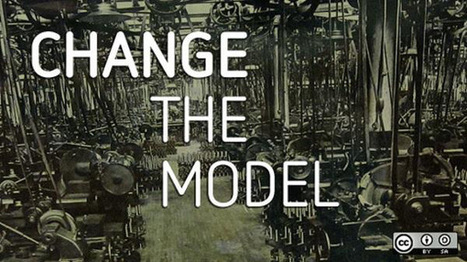First Semester Courses are Set for the Launch as of May First 2015! Join the team, self-organise activity, offer courses, support our projects, spread the word! Global Networked Labour University is a Free Libre and Open Source Remote Education System, … Continue reading →
Research and publish the best content.
Get Started for FREE
Sign up with Facebook Sign up with X
I don't have a Facebook or a X account
Already have an account: Login
on peer-to-peer dynamics in politics, the economy and organizations
Curated by
jean lievens
 Your new post is loading... Your new post is loading...
|

wimi-teamwork.com's curator insight,
December 16, 2014 3:17 AM
This is really interesting work on the rise of the networked employee and hat this means for collaboration and employee autonomy. |











